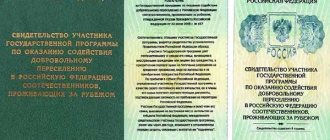District courts handle “9 out of 10” criminal cases
District courts take on the “lion's share” of criminal cases, not counting proceedings that fall under the competence of magistrates, higher judiciaries and military courts.
According to the thirty-fifth article of the Criminal Code, the district judge alone makes a decision on criminal cases that provide for a maximum penalty not exceeding five years of imprisonment.
A panel consisting of two people's assessors and one judge considers cases with more severe penalties - more than five, but less than fifteen years in prison, as well as criminal trials involving minors and teenage defendants, not counting cases within the competence of the magistrate's court.
How is jurisdiction in a criminal case determined?
During 2011, citizens I. and B. committed crimes under paragraph “a” of Part 2 of Art. 158 of the Criminal Code of the Russian Federation (theft committed by a group of persons by prior conspiracy) in the cities of Samara, Ulyanovsk, Kazan. At the same time, they were detained in Kazan after committing another theft. During the preliminary investigation conducted by an investigator of the Kazan internal affairs bodies, it was established that most of the thefts by I. and B. were committed in Samara. To which court should a criminal case against these persons be sent for consideration on the merits? What determines the jurisdiction of this category of cases?
Lawyer Antonov A.P.
Good afternoon According to Article 32 of the Criminal Procedure Code, a criminal case is subject to consideration in court at the place where the crime was committed, with the exception of cases provided for in parts four and five of this article, as well as Article 35 of this Code.
If a crime was started in a place subject to the jurisdiction of one court, and ended in a place subject to the jurisdiction of another court, then the criminal case is subject to the jurisdiction of the court at the place where the crime was completed.
If the crimes were committed in different places, then the criminal case is considered by the court, whose jurisdiction extends to the place where the majority of the crimes investigated in this criminal case were committed or the most serious of them were committed.
If a crime was committed outside the Russian Federation and the preliminary investigation of the criminal case was carried out on the territory of the Russian Federation in accordance with Article 459 of this Code on the grounds provided for in Article 12 of the Criminal Code of the Russian Federation, the criminal case is considered by a court whose jurisdiction extends to the place of residence or place of stay of the victim in the Russian Federation or to the place of residence or place of stay of the accused in the Russian Federation, if the victim lives or stays outside the Russian Federation.
A criminal case of private prosecution or a statement by a victim about a crime committed by a citizen of the Russian Federation against a citizen of the Russian Federation outside the Russian Federation is subject to consideration by a magistrate whose jurisdiction extends to the territory in which the victim or accused resides.
The issue of changing the territorial jurisdiction of criminal cases specified in parts four and five of this article is resolved in the manner established by Article 35 of this Code.
Thus. in this case, the criminal case against these persons should be sent to the Kazan police department. The jurisdiction of such cases determines where most of the crimes were committed.
Sincerely, lawyer Anatoly Antonov, managing partner of the law firm Antonov and Partners.
Still have questions for your lawyer? Ask them right now here, or call us by phone in Moscow +7 (499) 288-34-32 or in Samara +7 (846) 212-99-71 (24 hours a day), or come to our office for a consultation (by pre-registration)!
Courts of the subjects of the Federation
Federal courts of general jurisdiction - regional, regional and republican courts - in the first instance hear cases of state secrets and crimes of “state scale”, murders with aggravating circumstances, etc. A complete list of cases within the jurisdiction of the constituent courts is contained in the thirty-sixth article of the Criminal Code.
Such cases are considered by mid-level courts, depending on the accompanying nuances of a particular case and legally prescribed penalties, with the consent or at the request of the accused, consisting of:
- two people's assessors and one judge;
- three professional judges;
- or a jury trial.
Summary of court cases
To obtain general information about the number of cases brought against a potential counterparty that are under the jurisdiction of courts of general jurisdiction, you need to create a company card. Then, on the “ Summary Courts of General Jurisdiction block , which provides information on the number of cases in which the company of interest acts as a plaintiff, defendant, third party (involved at the request of one of the parties), as well as the number of cases for administrative offenses.
Block “Courts of General Jurisdiction”
Military courts
Military courts accept cases brought against the military: citizens in military service and discharged from service, as well as persons undergoing military training, if the crimes were committed during the listed persons' military service or while at training camp.
The key link in the system of military judicial bodies - the garrison court - considers the entire range of criminal cases, not counting those within the competence of the Supreme Court and the jurisdiction of the naval court.
The district military court accepts for trial criminal cases providing for penalties in the form of imprisonment for a term of fifteen years to life imprisonment.
In the first instance, the Military Collegium of the Supreme Court considers cases initiated against judges of military courts, in the presence of an appropriate written request, as well as especially complex criminal cases of particular public importance - at the request of the accused person.
Criminal proceedings about the concept and types of jurisdiction
Jurisdiction in criminal proceedings is determined by the provisions of Article 31 of the Code of Criminal Procedure of the Russian Federation.
There are two forms of determining jurisdiction:
- The system of judicial authority to accept for consideration the type of criminal cases regulated by law.
- A system of legal distinctive aspects inherent in the competence of the courts of initial instance.
The relevance of a criminal case to a specific court is confirmed by the competence, fullness of rights and status of the court in the hierarchy of the judiciary.
The meaning of the distribution of cases by jurisdiction is necessary for the following:
- be a guarantee of consideration of materials where they are required to be considered by law;
- allow the court to objectively consider a criminal case as soon as possible;
- the proceedings are carried out territorially where the criminal acts took place and the participants in the proceedings are registered;
- divide cases into categories and characteristics of the perpetrators.
The court, when accepting materials for proceedings, is obliged to establish its competence within the framework of the current procedural code.
In jurisprudence there are three forms of jurisdiction:
- It is characterized by a territorial feature - a territorial appearance.
- Characterized by the qualification of criminal manifestations - generic type.
- Characterized by the distinctive features of the subject - personal appearance.
When making a decision, each specified characteristic is evaluated independently. Used to divide cases involving criminal liability between courts.
Arbitration courts
The activities of the Arbitration Courts of the Russian Federation are regulated by the federal constitutional law “On Arbitration Courts in the Russian Federation”. The procedure for legal proceedings in arbitration courts is determined by the Arbitration Procedural Code of the Russian Federation.
The Arbitration Courts consider disputes relating to business and economic activities, i.e. claims between organizations and individual entrepreneurs, as well as between government agencies and organizations and individual entrepreneurs.
Arbitration court judges consider:
- economic disputes;
- statements about unlawful actions and inactions of government bodies, unlawful decisions of government bodies (officials);
- statements of claim regarding administrative offenses committed;
- cases of challenging arbitration decisions;
- on the issuance of writs of execution against decisions of arbitration courts.
Some cases are considered only by the arbitration court:
- bankruptcy cases;
- corporate dispute cases;
- disputes regarding state registration of legal entities and individual entrepreneurs;
- disputes regarding the activities of depositories;
- on the protection of business reputation.
How is a criminal case initiated?
Anyone who thinks that when submitting an application to the Ministry of Internal Affairs they will be greeted with open arms and sympathized with is naive. And it doesn’t matter what happened to you: wallet theft, fraud or insult. The system is designed in such a way that law enforcement officers try their best to avoid unnecessary criminal cases. For them, this is additional work for which no one will pay extra.
It’s only in TV series that a police officer listens sympathetically to a theft victim, gives her a paper handkerchief to wipe away her tears, and immediately runs off to look for the culprit in hot pursuit. In reality, everything is not so rosy. The process is quite complicated.
So, if you come with a statement to the Ministry of Internal Affairs, be prepared for the fact that they will be reluctant to open a case. They will dissuade you. They can convince you that nothing will happen to you anyway.
The case does not amount to a criminal case. There is simply no reason to excite him. They may promise to sort it out as soon as possible, accept the application and send a refusal. This gives rise to distrust in the employees of this department, as well as a lack of faith among citizens that justice can be achieved.
Submitting an application
So, there must be a reason to initiate a criminal case. This is considered a complaint to law enforcement about a crime committed. First of all, the victim needs to submit an application to the Ministry of Internal Affairs and get it accepted.
If there is a chance that it will be possible to solve a crime without delay, then you need to contact law enforcement agencies as soon as possible.
However, if the matter does not require urgent intervention, we advise you to prepare well for your visit to the Ministry of Internal Affairs. The application can be prepared in advance. Describe the circumstances of the case in detail. Print out two copies. Collect all possible evidence. The more of them there are, the greater the chances of success. Don't leave this job to the operatives! It's better to prepare everything yourself.
When you arrive at the police station, you will be directed to the officer on duty. He can redirect you to the right department or take your testimony personally. In any case, after talking with the policeman, you should have confirmation in your hands that the application has been accepted. This may be a certified copy of this document or a receipt notification coupon.
They may try to persuade you to leave a statement and leave. There is no need to do this! Request a certified copy or notification of receipt.
If an employee starts persuading you to come at another time or go to a neighboring department, do not give in. By law, police are required to record any message from citizens.
When filing an application, be aware of the penalties for false reporting. You will definitely be forced to sign the appropriate protocol. The application cannot be submitted anonymously. It must contain the details of the injured party. Without this, the application will not be accepted.
Not only the victim can report a crime. The culprit can contact the police himself. This is called turning yourself in.
The offender can tell about the crime committed orally to the employees of the Ministry of Internal Affairs. Then a protocol must be drawn up and signed. The culprit can also bring a written statement prepared in advance.
Grounds for initiating criminal proceedings
In order for a criminal case to be initiated, grounds are needed. This is the name given to signs that indicate that a dangerous act has been committed.
Please note that all necessary grounds do not have to be present to initiate a case. The main thing is that the fact that a crime has been committed is obvious. Even if the perpetrator is unknown.
It is impossible to initiate a criminal case without grounds. Similarly, you cannot excite him if there is no reason. Only if these two components are present can a positive result be achieved.
Application consideration period
Once your application has been registered, it must be reviewed. The law gives 3 days for this. Sometimes the process requires additional time if evidence needs to be collected. Then the period for making a decision to initiate a criminal case can be extended to 30 days.
At the end of this period, the Ministry of Internal Affairs officer will be required to decide whether to initiate a criminal case or refuse. If the police officer refused to prosecute him unlawfully, this can be appealed to higher authorities.
If the time frame for considering the application is unreasonably delayed, this may become the basis for a complaint against the actions of the investigator. An employee of the Ministry of Internal Affairs may be subject to criminal liability.
During the consideration of the application, statements are taken from the victim and the culprit. Witnesses may also be interviewed. The investigator must collect evidence.
If the crime is obvious - for example, a murder has occurred - a criminal case can be opened without delay. This can be done during the arrival of the investigation team at the scene of the incident.
After opening the case, the applicant receives a ruling. It is sent by mail. The accused is given the decree against signature.
Grounds for refusal
The initiation of a criminal case may be refused. All the reasons for this are listed in Art. 24 Code of Criminal Procedure of the Russian Federation. They may refuse if:
- there was no crime;
- its composition is missing;
- no statement from the injured party;
- the culprit died;
- the statute of limitations has expired.
In these cases, the applicant will be sent a decision refusing to initiate a case. You can try to appeal it if you do not agree with it.
Now you know how to initiate a criminal case. This is not an easy process. We wish you good luck in the fight for justice!
Sources:
Procedure for considering a crime report
Criminal proceedings
constitutional Court
The procedure for the creation and operation of the Constitutional Court is established by Federal Constitutional Law No. 1-FKZ of July 21, 1994 “On the Constitutional Court of the Russian Federation.”
The Constitutional Court is authorized to resolve cases concerning questions of law, while the constitutional court itself does not consider the factual circumstances of the case.
Citizens, organizations, and officials may submit their appeals to the Constitutional Court if they believe that their rights and freedoms established by the Constitution of the Russian Federation have been violated when resolving their case in court, if they believe that any provisions of the normative act do not comply Constitution of the Russian Federation, or they believe that the provisions of the Constitution themselves are stated vaguely and need to be clarified.
Legislation regulating jurisdiction
The Constitution, being the main law of the state, contains the basis of jurisdiction. Article 20 is considered an example. Unlike part 1, part two allows the use of the jury in deciding the fate of the accused for criminal acts that carry the death penalty. A temporary ban on the use of such punishment leaves it in force.
Criminal proceedings, Articles 30 to 36, establish the rules for determining the court, which will be the only authority authorized to make a fair verdict. According to the rules set out in these articles, jurisdiction can be established, undergo changes and be called into question in a certain manner.
Legislation establishes and determines issues of jurisdiction through legislative acts. A lecture, preparation of an essay, defense of a diploma project on this topic allows a future lawyer, lawyer, law enforcement officer, legal consultant in any organization to have a diploma and become a professional and clearly understand the principles, usually summarized in a table:
- refusal to consider a case due to doubts about jurisdiction is unacceptable; a case received in accordance with procedural norms is accepted for consideration;
- if the court makes a verdict without taking into account jurisdiction, then this decision is illegal;
- a court of any instance cannot violate the boundaries of jurisdiction on the basis of Article 29 of the criminal procedure.
The scientific approach to determining the fundamental provisions of jurisdiction was considered in the new legal literature.
At institutes, this topic is reflected in graduates when defending their thesis. Preparation is based on studying the material from the latest textbook, which contains a section on criminal procedure, the presentation of which took place in the usual manner. The current legislation of the Russian Federation determines jurisdiction under Article 31 of the Code of Criminal Procedure.
The structure is arranged in order of increasing importance of the courts, indicating for each category of criminal articles under consideration:
- Magistrate's Court.
- District court of federal significance.
- Judicial body of the subject.
- Arbitration intersectoral arbitration court.
- Supreme Court.
The procedure for determining the necessary authority in cases of bankruptcy, divorce, debtor, road accident, compulsory medical insurance, fraud, murder and others should be decided at the pre-trial stage.









